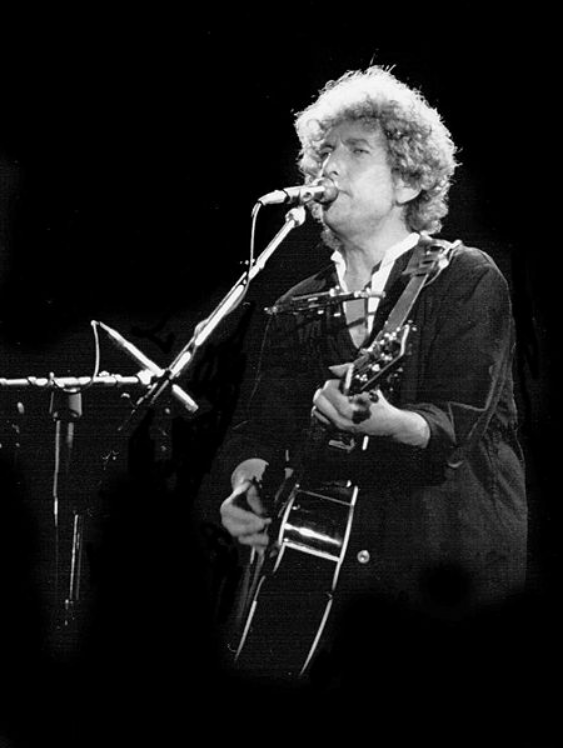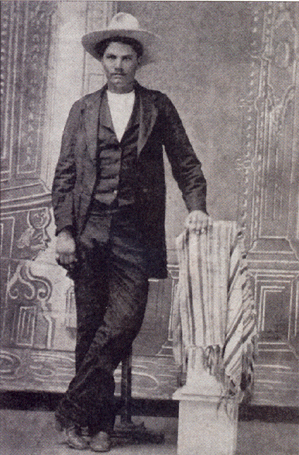Dylan's Education
Today, Dylan goes to school. The Honors College at the University of Houston presents this series about the machines that make our civilization run, and the people whose ingenuity created them.
Bob Dylan had a great experience in higher education. I'm not talking about his official college career. That comprised of a single year at the University of Minnesota, during which time, according to the man himself, he never went to class. Nor am I referring to the honorary doctorate he received a decade later, in 1970, from Princeton, an ordeal immortalized in his cheeky song "Day of the Locusts." No, I have in mind the curriculum Dylan created for himself in the coffeehouses and crash pads of Minneapolis and New York in the early 1960s. It's an education that the Nobel Laureate in Literature recounts in his 2004 memoir Chronicles: Volume One. Soaking up recordings and performances, Dylan learned from the best instructors: folk hero Woody Guthrie, blues poet Robert Johnson, and the ominous lyrics of "Pirate Jenny," a song from Bertolt Brecht and Kurt Weill's Threepenny Opera. In Greenwich Village, Izzy Young's Folklore Center became his seminar room.

Bob Dylan
Photo Credit: F. Antolín Hernandez via Wikimedia.
And like many a self-motivated student, Dylan did undergraduate research. He found his archive at the New York Public Library: a treasure trove of language in the form of antebellum and Civil War "newspapers on microfilm." The America of 1861, Dylan discovered, was in many ways the same as the America of 1961, "only with more urgency." Ringing with Biblical oratory and scorching sentiments, the music the young writer heard emanating from those ancient pages formed "one long funeral song." Set deep in Dylan's imagination, thanks to this intensive study, was the story of a time when the country "was put on the cross, died and was resurrected." It was not a narrative he needed to access right away. Dylan reckoned he "could send a truck back for it later."
His 1967 album John Wesley Harding is one such vehicle. Populated by ragged desperadoes and apocalyptic horsemen, this song cycle has one foot planted in the muddy landscape of mid-nineteenth-century America. "The Wicked Messenger," for example, is a brilliant mix of the Old Testament and the Old West. The songs evoke a period of our history when millions of Americans were radically free, and millions more radically unfree, a time of chains and escapes. Many of Dylan's outsider figures have that "strange and sometimes sinister individuality" that George Orwell noted in the characters we meet in Mark Twain's memoirs. Dylan's "degree" is in American Studies. It's not just the Mississippi River that links Minneapolis with Hannibal, Missouri.

John Wesley Hardin
Photo Credit: Wikimedia.
At a conference in Dallas a couple of years ago, I heard the eminent British academic Sir Christopher Ricks say that he began listening carefully to Dylan when friends played him John Wesley Harding. In 2003, this great critic of Milton and Keats published a book entitled Dylan's Visions of Sin. The maverick scholar was now the subject of scholarship.
I'm Robert Cremins at the University of Houston, where we're interested in the way inventive minds work.
Dylan, Bob. Chronicles: Volume One. New York: Simon & Schuster, 2004.
Orwell, George. "Mark Twain-The Licensed Jester." In The Collected Essays, Journalism, and Letters of George Orwell: Volume 2: My Country Right or Left: 1940-1943, edited by Sonia Orwell and Ian Angus, 325-329. Boston: Nonpareil Books, 2004, 2nd ed. Reprint.
Ricks, Christopher. Dylan's Visions of Sin. London: Penguin Group, 2003.
http://www.bobdylan.com/songs/wicked-messenger/
http://twain.lib.virginia.edu/roughingit/rihp.html
This episode was first aired on December 17, 2019